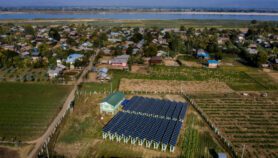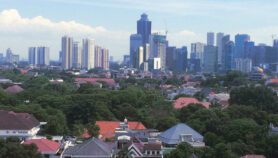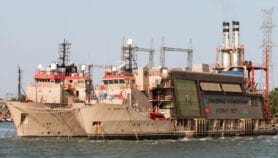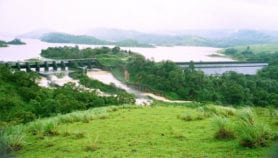By: Wagdy Sawahel
Send to a friend
The details you provide on this page will not be used to send unsolicited email, and will not be sold to a 3rd party. See privacy policy.
The United Arab Emirates’ bid to become an international hub for renewable energy takes a step forward this month with the opening of a US$1.2 billion graduate institution focusing on research into alternative energy, sustainability and the environment.
The Masdar Institute of Science and Technology (MIST), based in Masdar City in UAE capital Abu Dhabi, began operations on 6 September.
Launching at a temporary campus at The Petroleum Institute near the outskirts of Abu Dhabi, MIST has started the academic year with 92 students from 22 countries. Just over ten per cent of students are Emiratis.
MIST is part of the US$15 billion alternative energy and clean technology initiative launched in April 2006 by the UAE. Its two-year Master’s programme offers five multidisciplinary specialised areas geared towards the research and development of alternative energy and sustainability. MA programmes include: engineering and systems management; information technology; materials science and engineering; mechanical engineering, and water and environment.
Yousef Najjar, director of the Energy Centre at the Jordan University of Science and Technology said: "MIST is a vital step in making the UAE a regional research hub, as well as promoting science-based sustainable economic development through the use of environment-friendly renewable energy technologies."
The US-based Massachusetts Institute of Technology (MIT) will run joint research projects with MIST, as well as helping the fledgling institution with student recruitment. All current students are on a full scholarship and will graduate with a Master of Science degree accredited by the UAE Ministry of Higher Education.
PhD programmes will be introduced over the next five years. During this time, the student body is expected to grow to 600–800 people.
"It’s a great achievement to have such an esteemed university fully devoted to R&D in different fields of energy," said Najjar. "It will play an important role both at the national and the Arab world level."
He added: "MIST will not only turn UAE into an exporter of green technologies but also establish renewable energy technologies in the Middle East."
These thoughts are echoed by Wael Hmaidan, executive director of the Lebanese environmental group IndyAct.
"In the near future, when the world reduces its dependency on fossil fuels, the Arab deserts can become the providers of clean solar energy for Europe, Africa and Asia," she said. "The graduates from MIST can be the individuals that make this happen."













